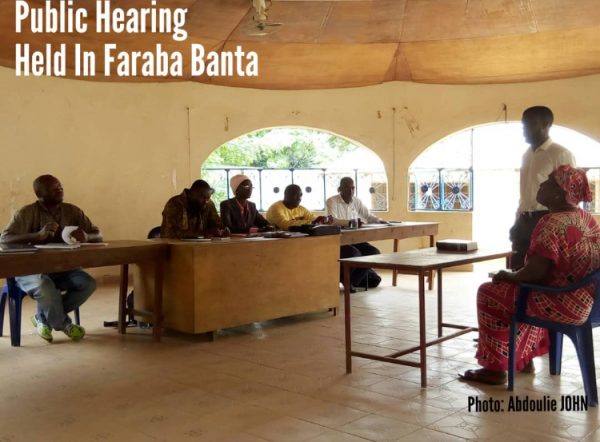 The ongoing commission of inquiry looking into the deadly incident in Faraba Banta Billage, Kombo East, Monday conducted sites visit and heard testimonies from the villagers.
The ongoing commission of inquiry looking into the deadly incident in Faraba Banta Billage, Kombo East, Monday conducted sites visit and heard testimonies from the villagers.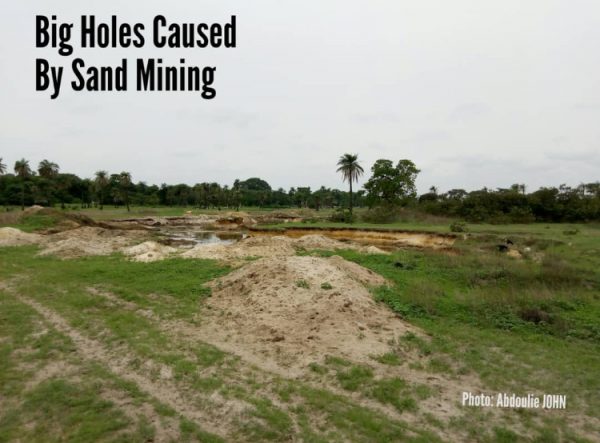 The villagers testified against Julakay Entreprise sand mining activities that continue to spark controversy after causing loss of lives during a bloody protest in June this year.
The villagers testified against Julakay Entreprise sand mining activities that continue to spark controversy after causing loss of lives during a bloody protest in June this year.Haddy Touray was the first to face Emmanuel D. Joof Inquiry Commission. She told the Commission that Julakay Entreprise mining activities were taking place in an area that is part of her rice fields. She further stated that she earns a living at farming, and she will not be able to do gardening if such activities continue.
Investigators were at their third visit to the Kombo East village as they keep making big push to shed light on a number of issues.
Wonto Kujabi Samateh, an old woman who braved the sun yesterday, gave a poignant testimony showing how the big holes caused by sand mining are preventing the water to reach their rice fields.
She said hunger will hit the community if they fail to cultivate rice, one of the basic commodities in the tiny West African nation.
Another witness, Sunkaru Jarjue, echoed similar sentiments.
Jarjue, who was arrested on June 18 along with journalist Pa Modou Bojang, said he came across the crowd and did not spare any effort to make his voice heard, telling paramilitary officers that Julakay should not be allowed to do sand mining in the village.
Awa Jarjue, one of the speakers during President Adama Barrow’s visit to Faraba Banta, reminded the audience that she was one of the first persons to go to confront the law enforcement officers over the decision to allow Julukay to go ahead with his plan to mine in the area.
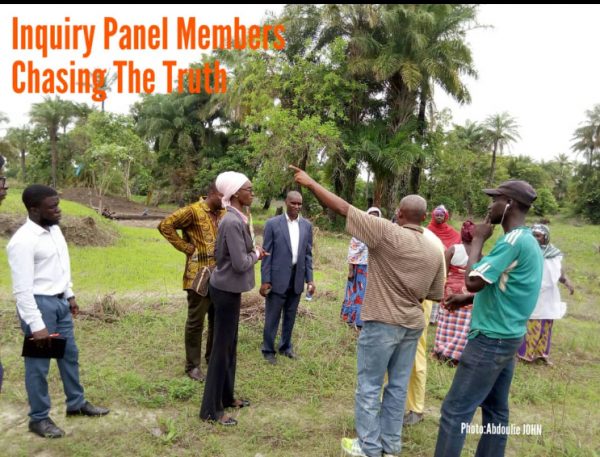 “I was part of the women who went to the country’s lawmaking body to meet with Parliamentarians on the issue,” she added.
“I was part of the women who went to the country’s lawmaking body to meet with Parliamentarians on the issue,” she added.Their move, she went on, prompted the MPs to visit Faraba.
Prior to the hearing, the Inquiry Panel members visited some houses where properties were allegedly vandalized by angry youths, and also paramilitary forces.
Household items, broken doors, car burnt to ashes constitute the pattern of a destructive action that has left many villagers still under shock.
Written by Abdoulie JOHN


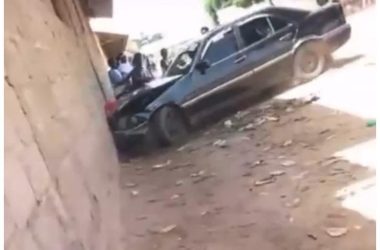

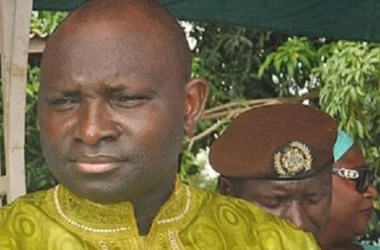

A round of applause for your article post.Thanks Again. Cool.